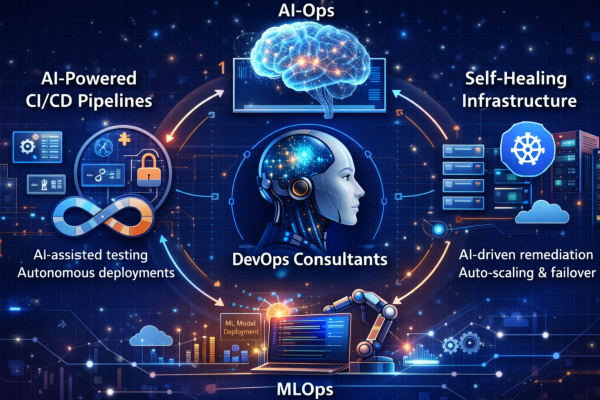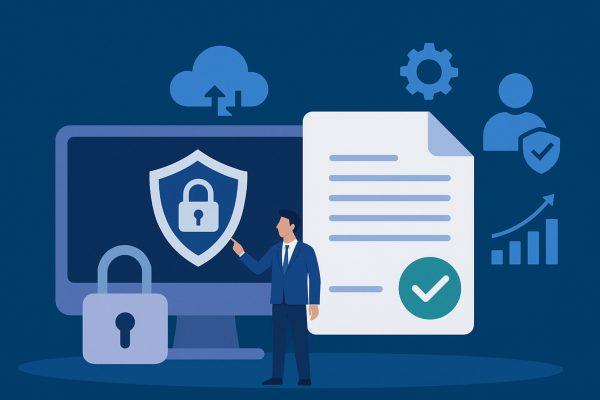7 Major DevOps Challenges and Issues
Introduction
Welcome to our exploration of the top challenges faced by DevOps service providers and how these challenges can be effectively addressed. DevOps, which emphasizes collaboration between development and operations teams, has brought about a revolutionary change in software development and deployment. However, like any transformative methodology, DevOps comes with its set of challenges that require innovative solutions.
Understanding DevOps
DevOps is a methodology that emphasises collaboration, communication, and integration between software development and IT operations teams. It aims to automate processes, streamline workflows, and enable faster and more reliable software delivery. The key principles of DevOps include continuous integration (CI), continuous delivery (CD), automation, and a culture of shared responsibility.
1. Cultural Resistance
Challenge: One of the biggest challenges in adopting DevOps is cultural resistance within organizations. Traditional silos between development, operations, and other teams can lead to resistance to change and a lack of collaboration.
Solution:
- Leadership Buy-In: Leadership must champion the DevOps initiative and communicate its importance to all teams.
- Cross-Functional Teams: Encourage collaboration by forming cross-functional teams that include members from development, operations, QA, and other relevant departments.
- Training and Education: Provide training and education on DevOps principles and practices to help teams understand the benefits and embrace the cultural shift.
2. Lack of Automation
Challenge: Automation is a core principle of DevOps, but many organizations struggle with implementing effective automation across their software delivery pipeline.
Solution:
- Identify Automation Opportunities: Conduct a thorough assessment of your processes to identify areas where automation can be implemented, such as testing, deployment, and monitoring.
- Use CI/CD Tools: Utilise continuous integration (CI) and continuous delivery (CD) tools to automate build, test, and deployment processes.
- Infrastructure as Code (IaC): Implement Infrastructure as Code practices to automate the provisioning and management of infrastructure resources.
3. Toolchain Complexity
Challenge: The DevOps toolchain often consists of multiple tools and technologies, which can lead to complexity and integration challenges.
Solution:
- Standardise Tools: Standardise on a set of tools that work well together and meet your organisation’s needs.
- Integration Platforms: Use integration platforms or frameworks to streamline the integration of different tools and technologies.
- Training and Support: Provide training and support to teams to ensure they are proficient in using the DevOps toolchain effectively.
4. Security and Compliance
Challenge: Maintaining security and compliance in a DevOps environment can be challenging, especially with the increased pace of software delivery.
Solution:
- Security Automation: Implement automated security testing and scanning tools as part of your CI/CD pipeline to detect vulnerabilities early in the development process.
- Compliance as Code: Use Compliance as Code practices to automate compliance checks and ensure that security policies are enforced throughout the development lifecycle.
- Collaboration with Security Teams: Foster collaboration between development, operations, and security teams to address security concerns proactively.
5. Scalability
Challenge: Scalability is another challenge in DevOps, especially when dealing with large-scale applications and infrastructure.
Solution:
- Scalable Architectures: Design applications and infrastructure with scalability in mind, using scalable architectures such as microservices and containerization.
- Monitoring and Performance Testing: Implement robust monitoring and performance testing practices to identify scalability issues early and optimize system performance.
- Cloud Services: Utilize cloud services and platforms that offer scalability features, such as auto-scaling and elastic load balancing.
6. Continuous Monitoring and Feedback
Challenge: Continuous monitoring and feedback are essential for identifying issues and improving software quality, but many organizations struggle with implementing effective monitoring practices.
Solution:
- Monitoring Tools: Use monitoring tools to track the performance, availability, and reliability of your applications and infrastructure.
- Alerting and Notifications: Set up alerting and notification mechanisms to quickly respond to issues and incidents.
- Feedback Loops: Establish feedback loops with users and stakeholders to gather feedback on software functionality and usability, and use this feedback to drive continuous improvement.
7. Resistance to Change
Challenge: Resistance to change is a common challenge in any transformational initiative, including DevOps adoption.
Solution:
- Change Management: Implement effective change management practices to manage resistance and address concerns from team members.
- Communication and Transparency: Communicate openly and transparently about the goals and benefits of DevOps, and involve team members in decision-making processes.
- Celebrate Successes: Celebrate achievements and successes along the DevOps journey to build momentum and motivation.
Conclusion
DevOps offers numerous benefits, but its successful implementation requires overcoming various challenges. By addressing cultural resistance, embracing automation, managing toolchain complexity, prioritizing security and compliance, designing for scalability, implementing continuous monitoring and feedback practices, and managing resistance to change, organizations can unlock the full potential of DevOps and achieve faster, more reliable software delivery.
DevOps is not just about tools and technologies; it’s about people, processes, and culture working together to drive innovation and business success. With the right strategies and mindset, organizations can navigate these challenges and reap the rewards of a well-executed DevOps transformation.
Author







